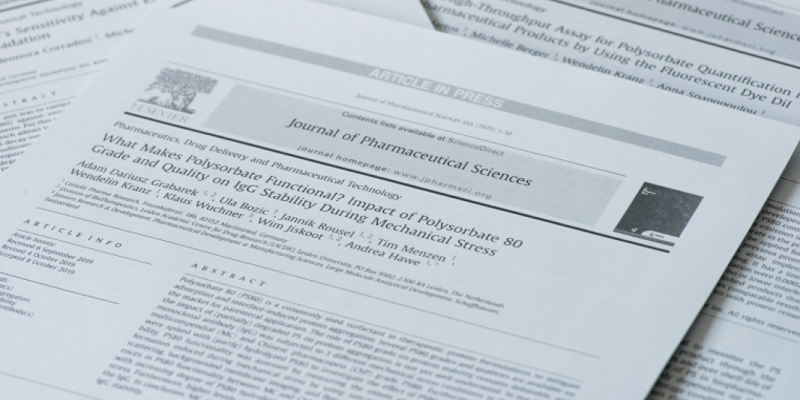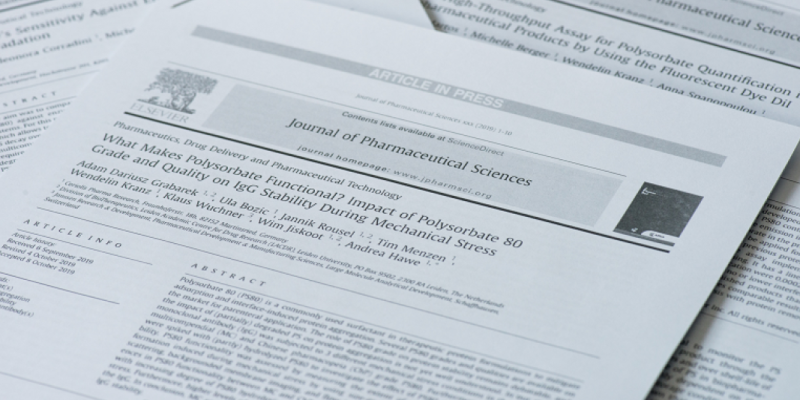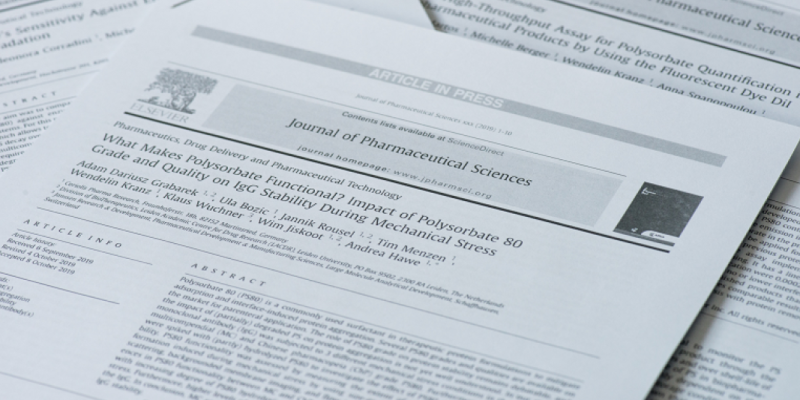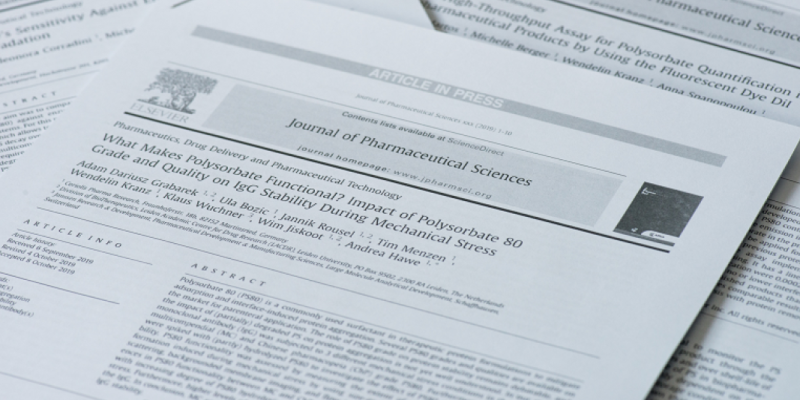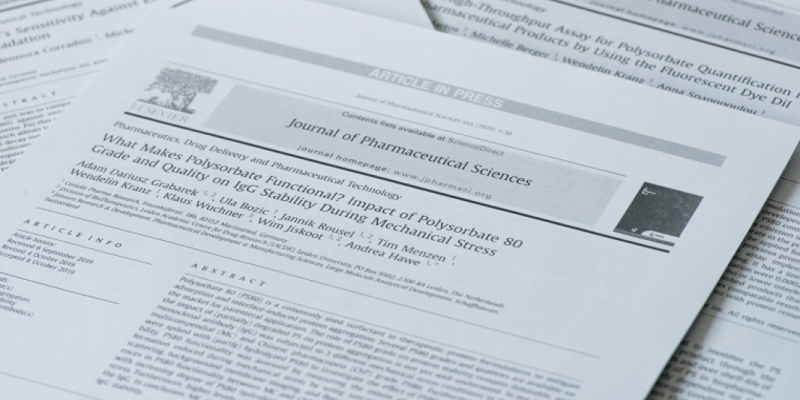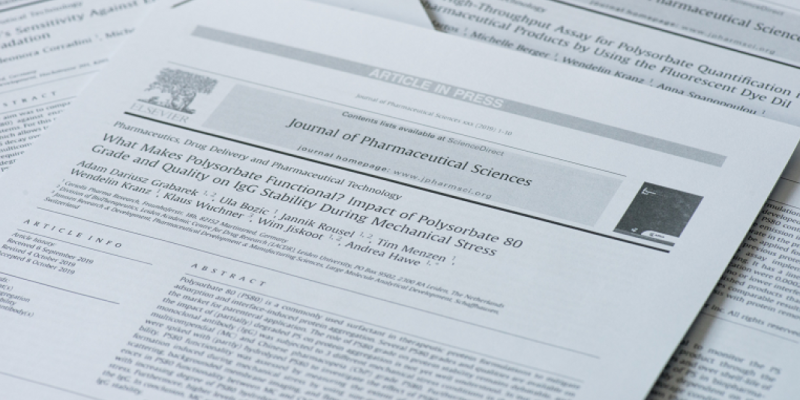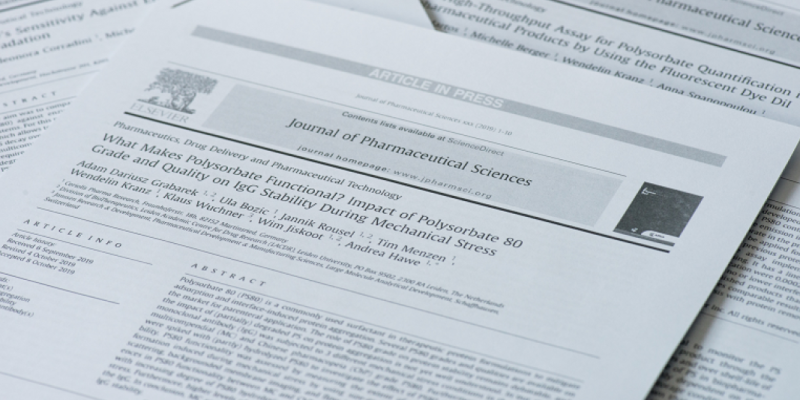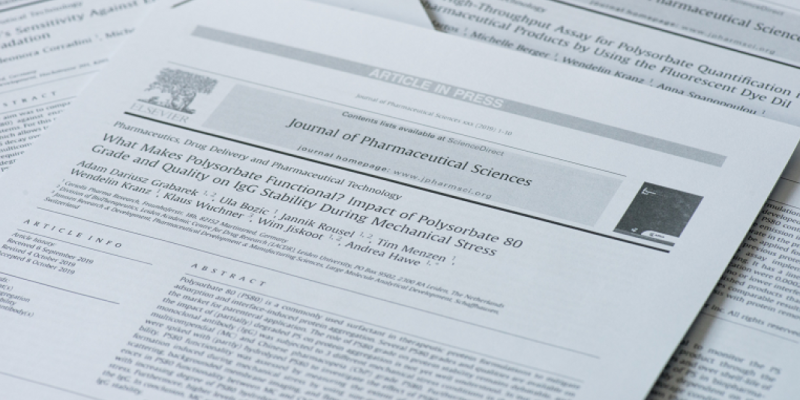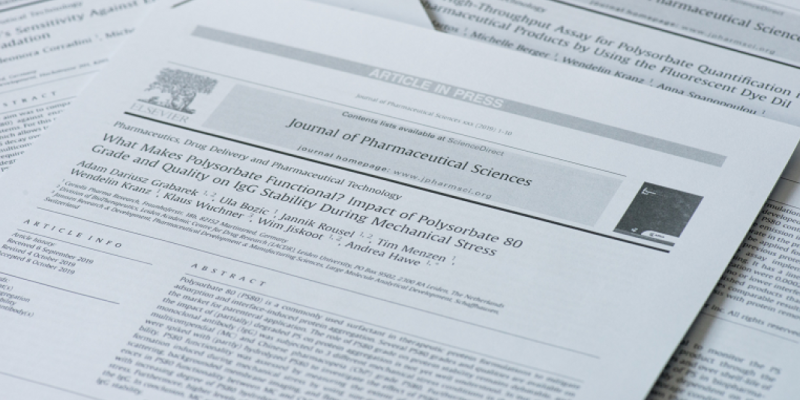Influence of hydroxypropyl-Beta-cyclodextrin on the stability of dilute and highly concentrated immunoglobulin g formulations.
J Pharm Sci. 2013 Nov
Antibody solutions usually require the addition of suitable excipients-such as surfactants and polyols-to overcome stability problems under mechanical or thermal stress. Because cyclodextrins exhibit weak surface activity (similar to surfactants) and a sugar-based structure (like polyols), they can, in principle, stabilize proteins by a double mechanism. Accordingly, the stabilizing potential of increasing concentrations of hydroxypropyl-beta-cyclodextrin (HPβCD) was investigated for two antibodies in dilute (1.8 mg/mL) and highly concentrated (100 mg/mL) solutions and compared with standard polysorbate 80 or sucrose formulations as controls. Formulations were stressed by stirring or elevated temperature, and stability was evaluated by monomer recovery using size-exclusion chromatography, turbidity, and light obscuration measurements. Results show that increasing HPβCD concentrations up to 100 mM lead to a gradual protein stabilization during stirring-irrespective of the protein concentration and unaffected by an increased viscosity. Storage at 50°C induced a decrease of monomer recovery with increasing HPβCD concentrations, which was mirrored in differential scanning calorimetry measurements, where an increasing amount of HPβCD leads to a significant reduction of the protein melting temperature. In the light of previous results on protein stabilization by HPβCD, it is suggested that the stabilizing effects of HPβCD must be tested on a case-by-case basis.
J Pharm Sci. 2013 Nov
https://jpharmsci.org/article/S0022-3549(15)30828-5/fulltext


